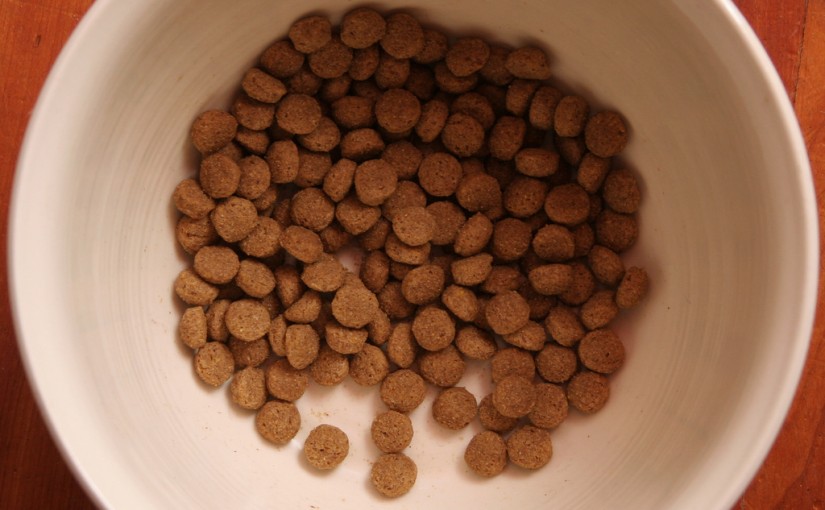What you feed your dog is one of the most important health decisions of dog ownership. A dog’s food heavily impacts its energy and overall health. But there are a lot of factors to consider. The right food for your dog depends on size, age, activity level and other special needs your dog may have.
But when your dog is well-fed, he is set up to live happy and healthy, with fewer health complications. Here are some tips to find the right food for your dog at every stage of life:
Puppies
Puppies’ growing bodies have special nutritional needs. How well their food meets those needs can shape the dog they grow into and influence their healthy over the full course of their lives.
Look for ingredients that support growth and energy—because they’re growing so quickly, puppies need more of both per pound than adult dogs do. That means protein and carbs. A good kibble for puppies also includes healthy fats, which boosts a dog’s ability to absorb vitamins.
Improper or imbalanced nutrition in the puppy stage could negatively affect bone and joint growth, which could lead to long-term health issues. This is especially important for large dog breeds because they grow so rapidly as puppies.
Always feed growing dogs a food that is specifically designed for puppies. If your dog is a small or large breed, look for one specifically designed for that breed type. Also, make note of the instructions on the dog food to be sure you feed your dog the appropriate amount for its age, weight and size—under-feeding can leave your dog’s growth stunted, while overfeeding and lead to obesity, which can increase risk for joint and skeletal issues
Adults
Once your puppy has reached is full size and is no longer growing, it is time to switch it to an adult dog food. This is important for meeting your full-grown dog’s health needs for weight management, oral care, activity level digestion, and more.
For good adult dog nutrition, look for protein for muscle support, and carbs for energy and fiber. Healthy fats continue to be important too, supporting skin and coat health, energy boosting levels, and enhancing taste.
A food that helps your dog get its needed vitamins and minerals will keep its body strong and working properly. Stick to a dog food made for your dog’s type if it is a large or small breed or has other special needs.
Seniors
As dogs age, their metabolism slows and their activity levels go down. As this happens, dogs’ need for calories and fat goes down.
Dogs eight years and older have a higher risk for a number of health issues including obesity, heart disease, kidney disease, dental disease, degenerative hip and joint disease, and more. They’re also more prone to digestive irregularities. Stick to a dog food created or seniors to help your dog get the appropriate nutrients, and if your dog has a health issue, look for a food that can help address it.
Senior dogs may also start to lose their appetite. If you notice your dog eating less, talk to your vet about potential health issues and look out for signs of discomfort, such as difficulty chewing. Consider ways to make the food more palatable or easier to consume, such as adding a little water to dry food to soften it and reduce digestive issues.
What You Feed Your Dog Matters
A dog’s nutrition needs can vary significantly based on its size, age and activity level. To make sure your dog is getting the health support it needs from its food, always check that the food’s intended consumption matches your dog’s life stage, and make note of any special needs it has.
From the puppy stage to adulthood to your dog’s silver years, make sure your dog’s food is designed to meet its specific health needs. Follow these simple tips, and you’ll set your dog up for a long and healthy life.

Leave a Reply
You must be logged in to post a comment.